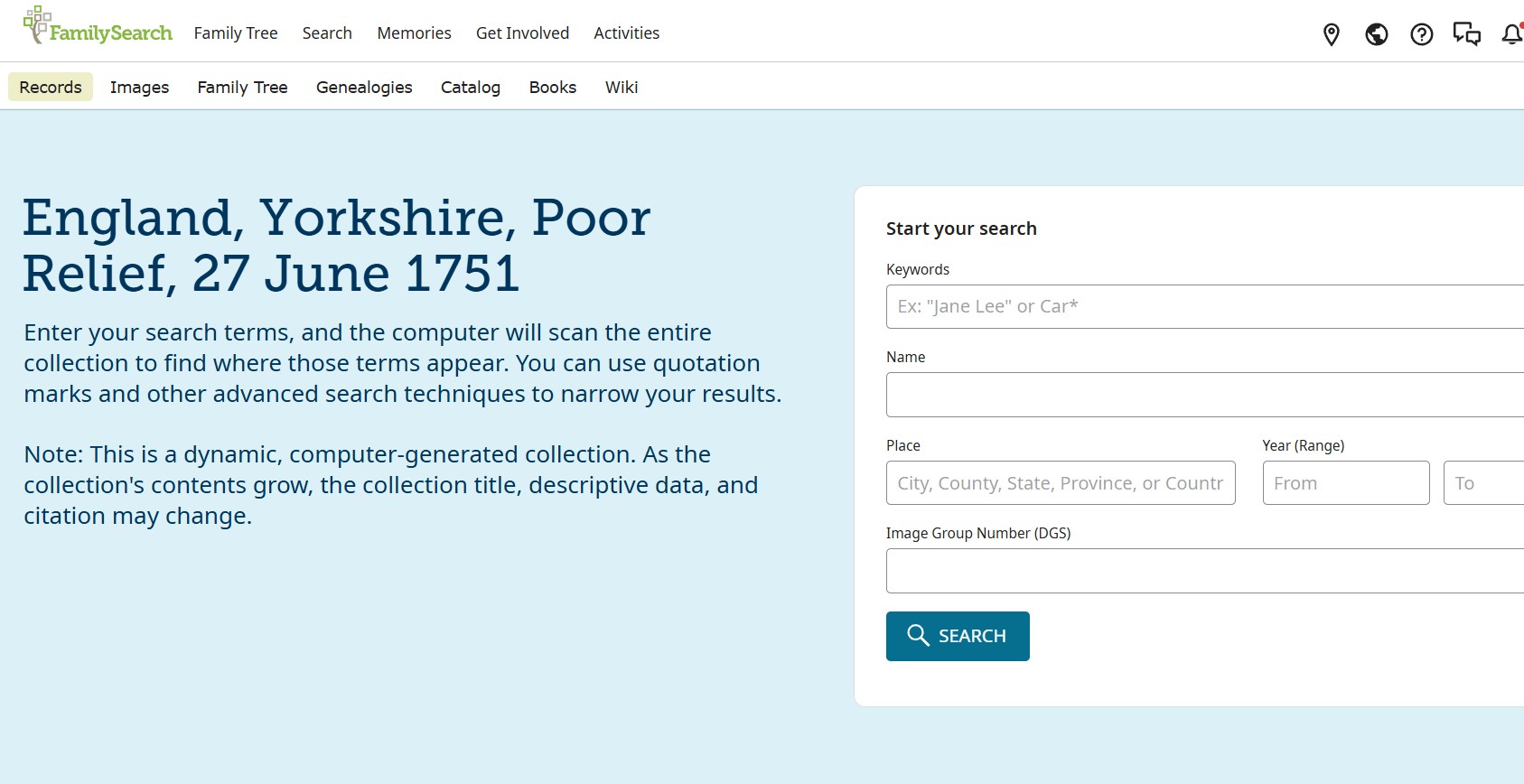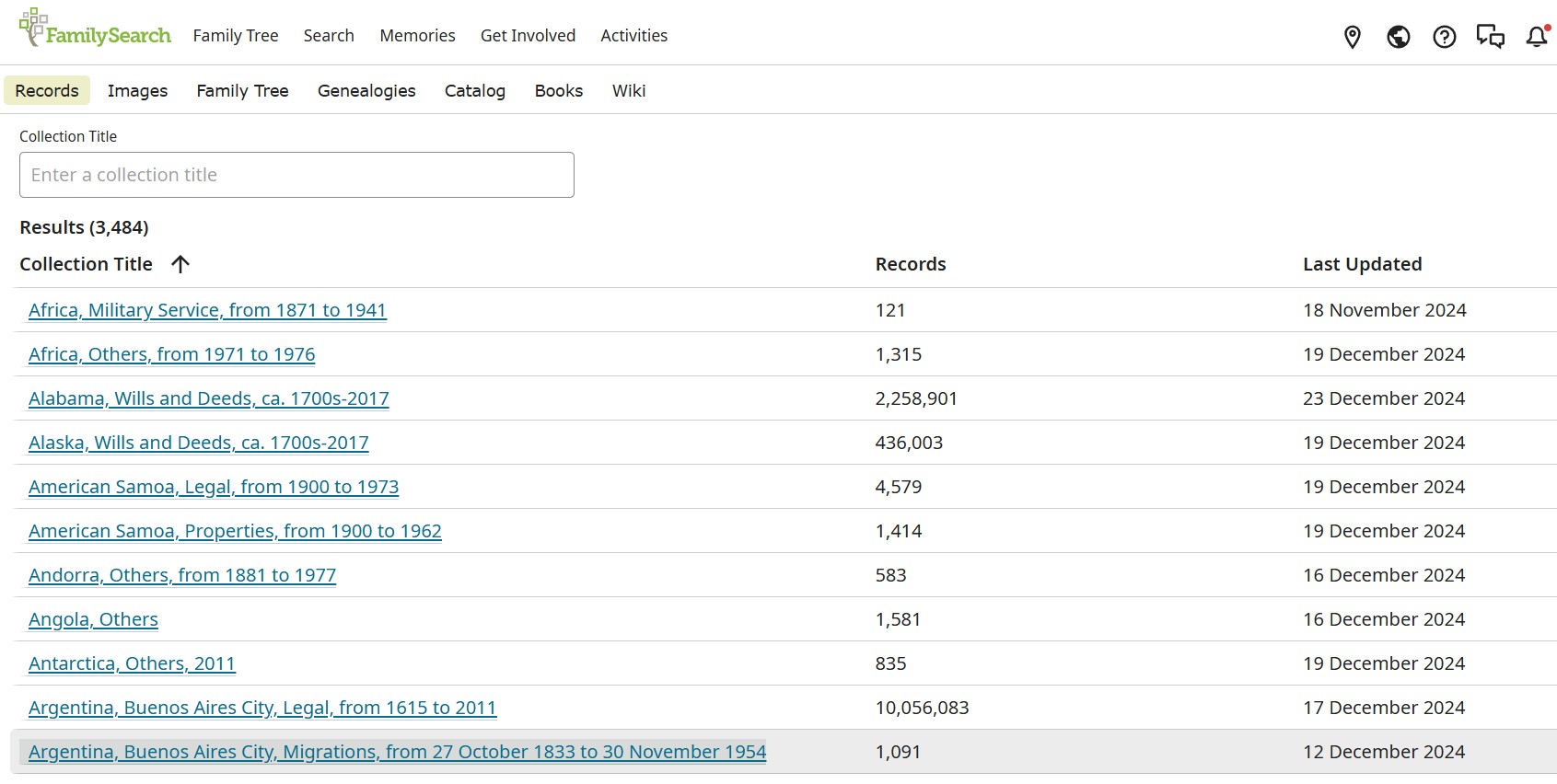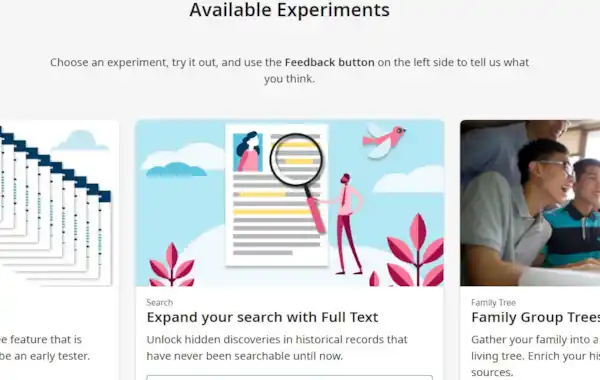AI-powered Full-Text Search from FamilySearch is an experimental Labs product, which gives a taste of genealogy research in the future. No longer will we be relying on indexes, restricted to specific fields. With a full-text search, genealogists will increasingly be able to search on whatever words and people they wish. Read on to see how the FamilySearch Full-Text Search works ...
Why is FamilySearch Full-Text Search tool useful?
'Unlock hidden discoveries in historical records that have never been searchable until now,' states the FamilySearch Full-Text Search coverage. The ability to fully search digitised images of old documents - circumventing the laborious indexing stage - will make searching for details of the people we seek so much easier and more interesting.
For instance, imagine searching marriage registers and being able to search by and find the names of the witnesses. Similarly with wills or Army records we would, in principle, be able to search on the names of beneficiaries or next of kin, respectively.
By and large, the current state of genealogy searching is that we have the functionality to search on the defined fields. And, due to the historically laborious nature of indexing, only certain details would be indexed - and thus searchable.
How does the FamilySearch Full-Text Search work?
With FamilySearch's Full-Text Search, which harnesses the power of machine-learning and OCR (optical character recognition) software - then digitised images of handwritten original documents could become fully searchable, without being indexed.
OCR search functionality is something that genealogists are well-used to - for instance on the digitised newspaper collections at the British Newspaper Archive and Findmypast.co.uk - and the search results do have much room for improvement, even when the OCR technology is applied to printed newspapers. So, what are the results via FamilySearch Full-Text Search like?
How to try out the FamilySearch AI Full-Text Search:
1. Go to www.familysearch.org/labs - and log in (using your usual FamilySearch log in)
2. Scroll down to find Full-Text Search and select 'Try it' (you can also find it at https://www.familysearch.org/search/full-text)
Note: As the Full-Text Search is a FamilySearch Labs product it is under development and it may not be permanently available.
What is available so far via FamilySearch Full-Text Search? Which record collections can be Full-Text Searched?
To view a list of the collections that are currently (January 2025) available for Full-Text Search, see: https://www.familysearch.org/search/full-text/collection/list?count=20
By way of comparison for a list of the collections currently (January 2025) found via the FamilySearch Search > Find a Collection? Browse all Collections link, see: https://www.familysearch.org/search/collection/list?count=20
Interestingly both the links (just above) show that each contains access to different material. e.g. some collections are solely available via the Full-Text Search collections catalogue, while others of the collections are solely available via the usual FamilySearch Find a Collection link.
How to search with FamilySearch AI Full-Text Search:
1. You may use the basic search - searching on names, a place, keywords, a date range, and an Image Group Number (DGS).
2. Use some of the Advanced Search options, again to narrow your search and obtain more specific search results. The Advanced Search options include wildcards (? and *), the use of + or - to include, or exclude, certain words from a search, and more. A list of search operators are on the Full-Text Search page.
3. Alternatively, browse the collections to find the one you need, and conduct your search solely within that collection (rather than searching across the entire FamilySearch database).

Above is a screengrab showing the search screen interface, having chosen a specific collection (in this instance the England, Yorkshire, Poor Relief collection https://www.familysearch.org/search/full-text/collection/M9VM-S8L). In case it's not legible this is a copy of the explanatory wording on the search screen:
Enter your search terms, and the computer will scan the entire collection to find where those terms appear. You can use quotation marks and other advanced search techniques to narrow your results.
Note: This is a dynamic, computer-generated collection. As the collection's contents grow, the collection title, descriptive data, and citation may change.

Above is an example of some of the collections available for Full-Text Searching. As can be seen by the dates in the far right column (if the screengrab is legible; apologies if it isn't) the collections are being rapidly added to the website. Search on keywords of interest to retrieve a list of collections of specific interest to your research.







